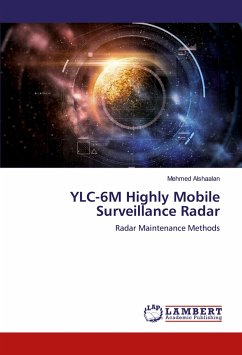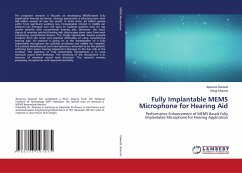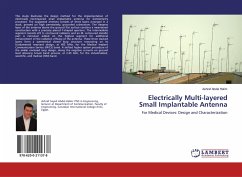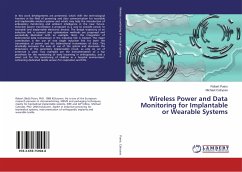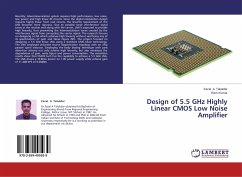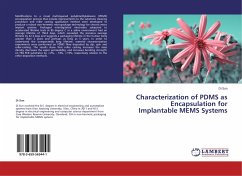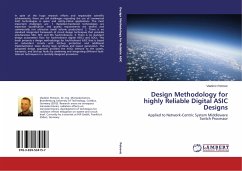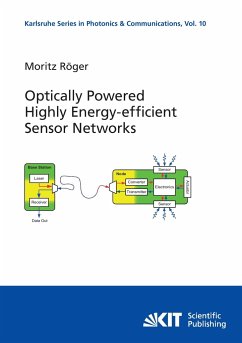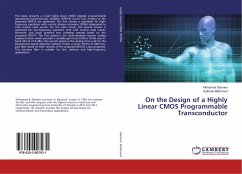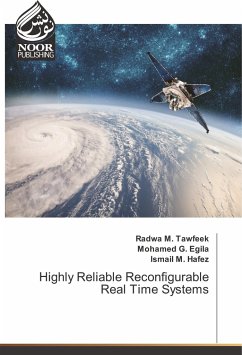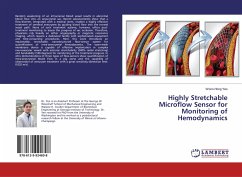
Highly Stretchable Microflow Sensor for Monitoring of Hemodynamics
Versandkostenfrei!
Versandfertig in 6-10 Tagen
27,99 €
inkl. MwSt.

PAYBACK Punkte
14 °P sammeln!
Random weakening of an intracranial blood vessel results in abnormal blood flow into an aneurysmal sac. Recent advancements show that a flow-diverter, integrated with a medical stent, enables a highly effective treatment of cerebral aneurysms by guiding blood flow into the normal vessel path. None of such treatment systems, however, offers post-treatment monitoring to assess the progress of sac occlusion. Therefore, physicians rely heavily on either angiography or magnetic resonance imaging, which require a dedicated facility with sophisticated equipment and time-consuming procedures. Here, th...
Random weakening of an intracranial blood vessel results in abnormal blood flow into an aneurysmal sac. Recent advancements show that a flow-diverter, integrated with a medical stent, enables a highly effective treatment of cerebral aneurysms by guiding blood flow into the normal vessel path. None of such treatment systems, however, offers post-treatment monitoring to assess the progress of sac occlusion. Therefore, physicians rely heavily on either angiography or magnetic resonance imaging, which require a dedicated facility with sophisticated equipment and time-consuming procedures. Here, this work introduces an implantable, stretchable, nanostructured flow-sensor system for quantification of intra-aneurysmal hemodynamics. The open-mesh membrane device is capable of effective implantation in complex neurovascular vessels with extreme stretchability (500% radial stretching) and bendability (180 degrees) for monitoring of the treatment progress. In vitro demonstrations of three types of flow-sensors show quantification of intra-aneurysmal blood flow in a pig aorta and the capability of observation of aneurysm treatment with a great sensitivity (detection limit: 0.032 m/s).



